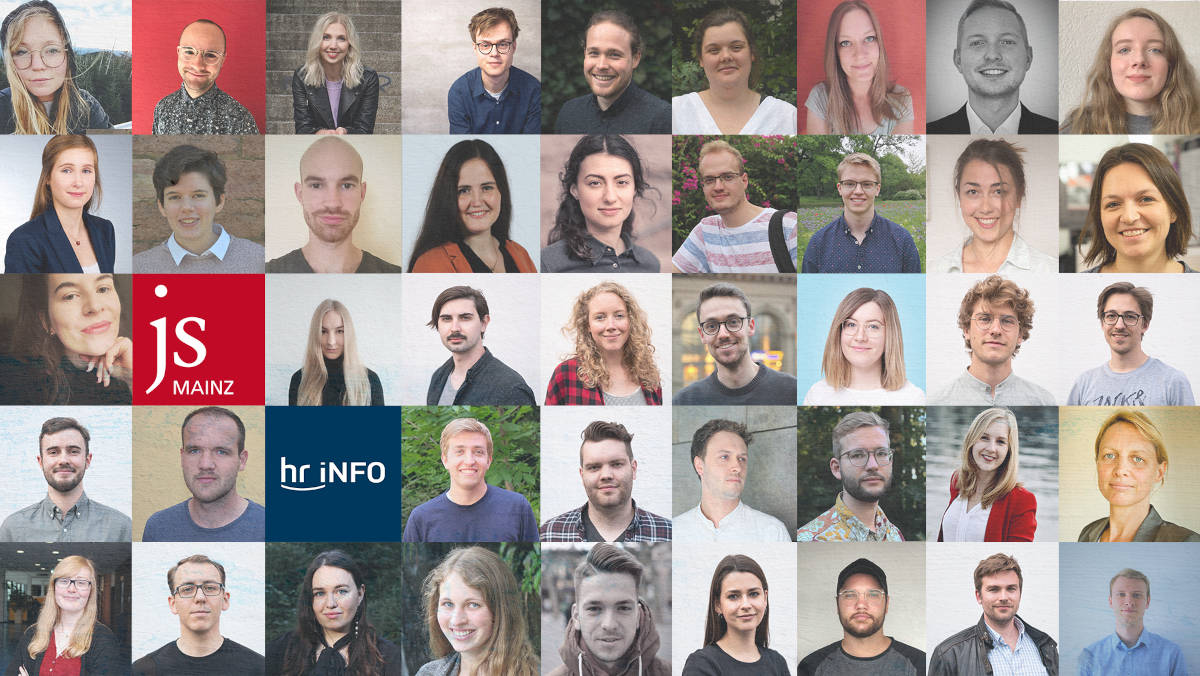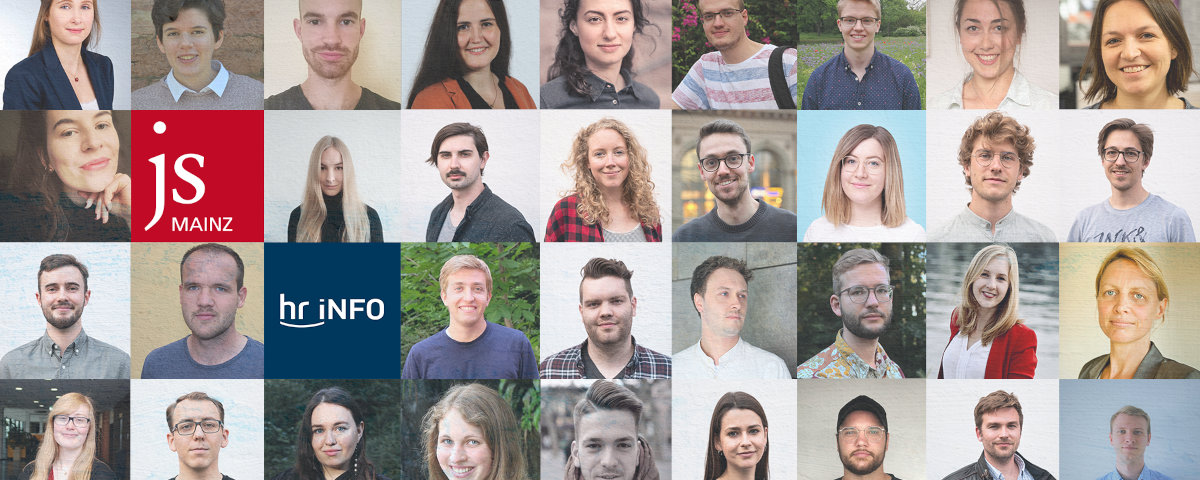hr-iNFO-Project | 30.07.2020
Young. Power. Politics
In the online dossier “Young. Power. Politics.”, users can “virtually scroll through the (potential) future of our political landscape”, says Frederik von Castell, who works as a data journalist for hr-iNFO and supervises the multimedia final-year projects at the School of Journalism at Mainz University in addition to data journalism. He reveals more about the background to the cooperation in the interview.
The parties are lacking young talent, but at the same time the “youth of today” seem anything but apolitical. What definition of politics was used in the hr-iNFO project “Young. Power. Politics.” project?
From the outset, it was important to us not to limit young political talent to people who are young and have a career in political parties. Instead, we wanted to make the diversity of political commitment visible. Black Lives Matter and Fridays for Future are just two examples of how much politically minded and active activists achieve today - but also how much they invest. We spoke to a number of protagonists who are involved outside of party careers - whether as night mayors, organisers of demonstrations, initiators of debates and much more. All of this is political action. But we also show the new faces who are bringing a breath of fresh air to the parties in Hesse and nationwide.
The podcast has already been launched, and now there is an extensive and constantly growing online dossier. Who is it aimed at and what criteria were used to select interviewees and testimonials?
The dossier is aimed at a wide range of users, because we believe that people of all ages are interested in who takes to the streets to defend their rights, debates in parliament and has often achieved considerable influence at a young age. At the same time, it was important to us to address precisely the generation that “Young. Power. Politics.” They should get to know representatives of their age group who are committed to a better society both inside and outside of parliament. This also includes the representation of “young” interests. We wanted to show as many different ideas, faces and concepts as possible - which ultimately depends on the willingness of individuals to engage in dialogue and sometimes fails. Our main aim was to find activists with particularly good ideas. The selection should not be based on membership of a movement, party or even personal characteristics, and I think the authors have succeeded in doing this very well.
How is the dossier made, how is it related to the podcast in terms of content and why should users not miss it under any circumstances?
With the scrollytelling motif “Goodbye, Boomer!”, the dossier has a central element that links all the research. Individual protagonists are portrayed there. You can scroll through the (potential) future of our political landscape and get to know different personalities, ideas and approaches, from Fridays for Future activists to young members of parliament. However, all of the protagonists also represent overarching research questions that can be found in various multimedia narrative forms in the dossier. Sarah Lee-Heinrich, for example, is not only an interesting personality, but also stands for the question behind the special “Arena of the Privileged”: Can my family’s income or my background determine whether I have a chance to get involved in society, get involved, get elected? Or Hendrik Meier, night mayor in Mannheim, who also appears in “Politics in bars and buses” when it comes to new forms of participation and offers for young people in politics.
There are too many old, highly educated and predominantly male members of parliament without a migration background in the Bundestag.
Did you also want to exaggerate and polarise a little with the headline “Goodbye, Boomer!“?
As the students’ data research shows for the Bundestag, for example, there are - to put it bluntly - too many old, highly educated and predominantly male members of parliament without a migration background. This does not even come close to reflecting society. The young people we are introducing want to exert noticeably more political influence. That’s why the scrollytelling, in which the students portray some of the protagonists and let them have their say with their ideas for a better society, also bears this title. Simply because the “boomer” generation will be replaced by the current generation at some point.
Who contributed to this co-operation between the public media company hr and the university’s School of Journalism?
Chronologically speaking: The idea for the co-operation came from me, the main topic of the project and a rough outline of the ideas I submitted to the editorial team of hr-iNFO-Politik. The editorial team knows me because I’ve been working in two roles for around three years now - I’ve been helping to train Master’s students of journalism at the journalism seminar at Mainz University and also working as a data journalist for HR. In the first role, I have to supervise a multimedia editorial team full of young journalists, with whom I like to do large final projects. We are always looking for partners with whom we can publish and who will support us. That used to be ZEIT Online, it used to be hessenschau.de, and this time the politics editorial team at hr-iNFO was an obvious choice. The idea of creating synergies quickly emerged: I was supported by Sabine Kieslich and Tanjev Schultz, my boss there, in the research I supervised at the journalism seminar. At the same time, Sandra Müller developed and produced the podcast concept in the iNFO editorial team - supported by volunteer Lisa Muckelberg, who previously studied at the journalism seminar. Christina Sianides, Klaudija Schnödewind and Kerstin Henninger provided us with massive support for the online dossier. Above all, however, the project is fuelled by the research and multimedia stories produced by the (still) students. I think the realisation of this - especially in a corona-related digital semester - is really successful.

Portrait of the participating journalists
Do you see this kind of cooperation as a journalistic model for the future?
Journalism is like politics: it always needs new influences, perspectives and ideas in order to provide the best possible information. Fortunately, in addition to traineeships, there are also some good training programmes for young journalists in Germany - even if I would like to see more diversity and more places at universities and journalism schools. The most important thing for young journalists is the chance to prove their own skills and to familiarise themselves with the time pressure, constraints and opportunities of real editorial offices. On an individual level, you do internships, work shadowing and work in editorial offices alongside your studies. However, you don’t usually experience a project of this magnitude there. So I’m convinced that it’s a real win-win-win situation: journalism and hr benefit from young talent, young talent benefits from hr - and users, listeners and viewers are - hopefully - offered exciting and informative content.
The authors are studying at the School of Journalism of Johannes Gutenberg University Mainz. Information about the project Jung. Power. Politik. project at Mainz University in cooperation with hr-iNFO can be found here. Questions and feedback? Please send an email to jungmachtpolitik@hr.de!
Young. Power. Politics (in German)